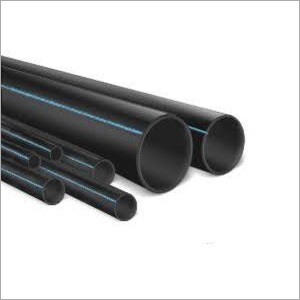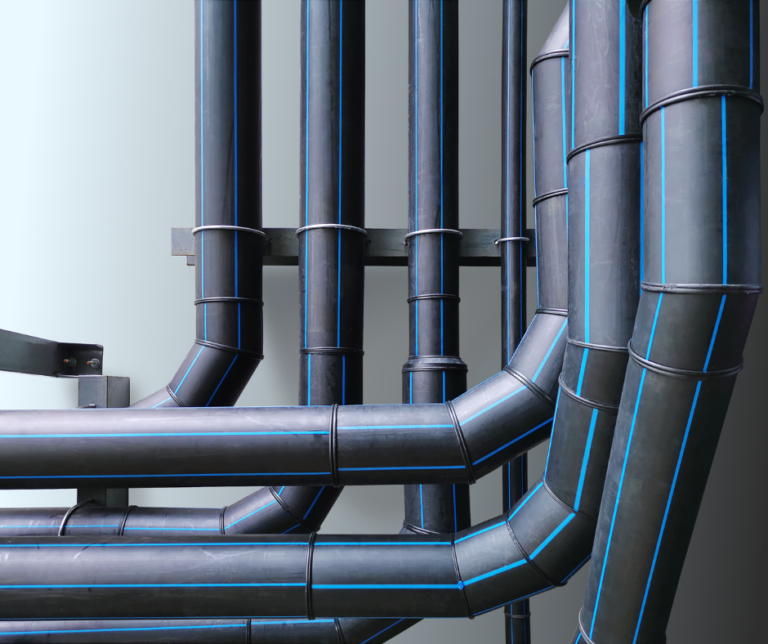A Comprehensive Overview to the Different Uses HDPE Pipe in Construction and Sector
HDPE pipelines have become a critical element in contemporary building and commercial applications. Their special residential properties, such as resistance to deterioration and light-weight style, make them appropriate for a large array of usages. From water systems to farming watering, HDPE pipes provide solutions that boost effectiveness and sustainability. Recognizing their diverse applications is necessary for experts seeking to optimize facilities. What particular advantages do these pipelines give each market?
Water System and Distribution Solutions
Supply of water and circulation systems are essential elements of urban framework, commonly relying on high-density polyethylene (HDPE) pipes for their sturdiness and efficiency. These systems transportation drinkable water from therapy facilities to consumers, making sure ease of access and safety and security. HDPE pipes are preferred for their resistance to rust, chemicals, and severe temperature levels, which boosts their durability and reduces upkeep prices. Furthermore, their light-weight nature permits less complicated setup and transport, making them perfect for numerous urban and country applications.
The flexibility of HDPE pipelines enables them to be mounted in tight areas and around barriers, reducing the requirement for comprehensive excavation (hdpe pipe in stock Midland TX). In addition, their smooth interior surface decreases rubbing losses, boosting water circulation rates. As cities proceed to expand, the need for trusted supply of water systems boosts, placing HDPE pipelines as a lasting solution for contemporary framework tasks. Their tried and tested track document makes them a favored option among engineers and metropolitan coordinators alike
Wastewater Administration and Treatment
Reliable wastewater monitoring and therapy are essential for maintaining public health and ecological top quality. HDPE pipelines play a crucial function in this process due to their sturdiness, resistance to rust, and ability to stand up to severe chemicals. These pipes are generally made use of in different applications, including sewage systems, stormwater water drainage, and wastewater therapy facilities. Their light-weight nature promotes less complicated setup and transportation, lowering labor costs and time.
On top of that, HDPE pipes have a smooth interior surface area that reduces rubbing loss, advertising effective circulation prices. They are additionally much less susceptible to leaks and failings compared to traditional products, guaranteeing that pollutants are contained effectively. Additionally, their adaptability enables versatility in various soil problems, making them ideal for diverse environmental setups. As industries progressively prioritize lasting practices, the usage of HDPE pipes in wastewater monitoring systems aligns with goals for decreasing environmental effect and improving source recovery.
Agricultural Watering Solutions
In farming setups, effective watering options are vital for enhancing plant yields and handling water resources. HDPE (High-Density Polyethylene) pipes play an important function in contemporary watering systems because of their longevity, flexibility, and resistance to corrosion. Their capability to stand up to high pressures makes them excellent for both surface area and subsurface watering applications, making certain uniform water distribution across areas.
Farmers can utilize HDPE pipes in drip irrigation systems, which provide water straight to plant origins, decreasing wastage and promoting healthy and balanced development. In addition, these pipelines are lightweight and simple to install, lowering labor expenses and setup time. Their lengthy life expectancy and reduced maintenance demands better enhance their allure in farming practices.
HDPE pipes are ecologically friendly, as they can be recycled and do not seep harmful chemicals into the soil. This makes them a sustainable selection for farmers aiming to take on environmentally friendly agricultural methods while making best use of efficiency.
Industrial Applications and Procedures
Versatility is a characteristic of HDPE pipelines, making them important in different industrial applications and procedures. These pipes are commonly utilized in chemical handling markets due to their outstanding resistance to a large range of corrosive substances. HDPE's light-weight nature, incorporated with high tensile strength, permits very easy installation and long-lasting efficiency sought after settings.
In the oil and gas sector, HDPE pipes play a vital duty in moving hydrocarbons and gases, thanks to their sturdiness and adaptability - Pipe Supplier American Plastics Midland. Furthermore, they are employed in mining procedures for the transportation of slurry and various other materials, where conventional piping systems might stop working
HDPE pipes are significantly made use of in producing facilities for water supply lines and wastewater management. Their capacity to hold up against severe temperatures and stress makes them appropriate for a range of industrial processes. Overall, HDPE pipelines add considerably to effectiveness and security across diverse commercial applications.
Stormwater Monitoring and Water Drainage Equipments
Stormwater monitoring and drain systems are critical components in urban framework, designed to handle excess rainfall and minimize flooding risks. High-density polyethylene (HDPE) pipes are increasingly utilized in these systems as a result of their longevity, adaptability, and resistance to rust. These pipes efficiently transfer stormwater away from populated areas, lessening surface area runoff and preventing waterlogging.
HDPE's light-weight nature assists in much easier installation, reducing labor prices and building and construction time. Furthermore, its resistance to chemicals and environmental stressors guarantees longevity and integrity in different climates. In addition to traditional drainage applications, HDPE pipes are additionally utilized in ingenious options such as eco-friendly infrastructure, that includes rain gardens and permeable sidewalks.

Frequently Asked Questions
Just How Does HDPE Pipeline Contrast to PVC Pipe in Cost?
Generally, HDPE pipeline often tends to be much more costly than PVC pipe as a result of its improved longevity and versatility. Long-term price considerations, such as maintenance and life expectancy, might prefer HDPE in certain applications.
What Is the Lifespan of HDPE Water Lines Under Numerous Conditions?
HDPE pipes generally have a life check here expectancy of 50 to 100 years, depending upon ecological problems, installment techniques, and usage. Elements such as temperature level, soil kind, and direct exposure to chemicals can considerably affect their longevity.
Can HDPE Piping Be Recycled After Use?
Yes, HDPE pipes can be reused after use. The reusing procedure includes melting down the material, permitting it to be repurposed into brand-new items, consequently advertising sustainability and decreasing ecological influence associated with plastic waste.
Exist Any Kind Of Specific Setup Challenges With HDPE Pipes?
Installment difficulties with HDPE pipes consist of proper jointing strategies, ensuring ample trench conditions, and taking care of thermal growth. Additionally, experienced labor is called for to deal with customized devices, which can make complex the setup procedure in various settings.

What Certifications Should I Search For When Buying HDPE Pipes?
When acquiring HDPE pipelines, one must search for certifications such as ASTM, AASHTO, and ISO, which validate high quality and compliance with sector criteria, ensuring toughness and performance in numerous applications. - Texas hdpe pipe manufacturer